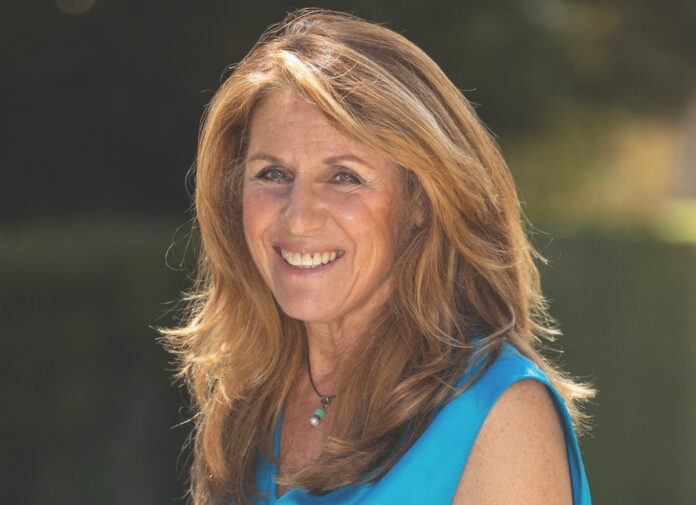It’s difficult to classify Vicki Larson’s new book, “Not Too Old for That,” although the subtitle, “How Women are Changing the Story of Aging,” certainly gives a nudge in the right direction.
Amazon listed the book, just out this week, in three categories: gerontology, women’s sexual health, and customs and traditions. I think the behemoth online book seller got it wrong.
Part memoir, part reference and part self-help, “Not Too Old for That” provides a fact-filled guide to help all women prepare for their golden years. You’re never too young to start, according to Larson.
In the world Larson yearns for, women will learn about finances early in life, beauty won’t be defined by Hollywood and advertising and women of a certain age will remain relevant in society.
Larson, 65, is well-known locally. For more than 17 years, she has worked as a journalist, columnist and lifestyles editor at the Marin Independent Journal. “Not Too Old for That” is Larson’s second book. She co-authored a book on modern marriages, which came out in 2014.
When writing “Not Too Old for That,” Larson says she went down the research rabbit hole. In fact, the book’s bibliography is 32 pages long.
“The more I read and researched, the angrier I got,” Larson said. “Angry about the narratives.”
More specifically, Larson became angered by the false narratives about women and aging, and the lack of studies on older women. When women base decisions on bogus information, it can cause serious harm.
Take sex for instance. Postmenopausal women still enjoy sex, despite the stereotypical story that they become asexual. Larson shares an account in the book of a woman who experienced her first orgasm at age 91.
The newly orgasmic woman isn’t an outlier either. As Larson points out, sexually transmitted infections have significantly increased at retirement homes in recent years. Yet, many doctors fail to ask their senior patients about their sexual activity.
Accepting the aging process is another concern addressed in the book. Women shouldn’t peg their self-worth on physical beauty, which is fleeting. There’s a beauty lesson to be learned from the pandemic, when many women dressed in comfy clothes, let the gray hair take over and chose not to apply makeup.
“Were we unf–kable?” Larson said. “No.”
Perhaps the biggest issue facing aging women, and men, is the turning point the United States will soon reach. In the year 2030, when all the baby boomers will be aged 65 and older, retired people will outnumber children for the first time in history.
Most of the seniors will be women, who tend to live longer than men. And many of those women will be living alone, according to Larson.
Living alone doesn’t scare Larson because her ideal relationship is “living alone together,” a lifestyle which is gaining popularity. Larson, who has been twice married and divorced, has little interest in marrying again, at least not without a prenuptial agreement. Still, she wants to be in a relationship, provided he lives in his home while she lives in hers.
“I’m not against marriage,” Larson said. “There’s a lot of pressure for ‘the ring.’ And there’s more than 1,100 perks from the federal government for married couples.”
Married or single, youngster or senior, Larson hopes her book helps empower women to go out into the world with confidence. Questions at the end of each of the eight chapters encourage women to think about the false narratives they’ve internalized and how they feel about themselves.
“The decisions you’re making right now are going to impact what you’re becoming,” Larson said. “We’re always becoming a different version of our self. I want women to be kind to their future selves. That’s what you’re becoming.”









